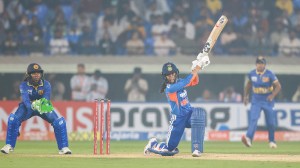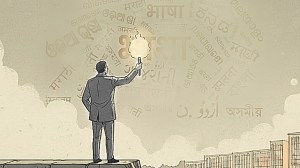Apurva Vishwanath is the National Legal Editor at The Indian Express, where she leads the organization’s coverage of the Indian judiciary, constitutional law, and public policy. A law graduate with a B.A., LL.B (Hons) from Dr. Ram Manohar Lohiya National Law University, Apurva brings over a decade of specialized experience to her reporting. She is an authority on judicial appointments and the Supreme Court Collegium, providing critical analysis of the country’s legal landscape. Before joining The Indian Express in 2019, she honed her expertise at The Print and Mint. Follow her insights on the intersection of law and governance on Twitter ... Read More
Kaunain Sheriff M is an award-winning investigative journalist and the National Health Editor at The Indian Express. He is the author of Johnson & Johnson Files: The Indian Secrets of a Global Giant, an investigation into one of the world’s most powerful pharmaceutical companies. With over a decade of experience, Kaunain brings deep expertise in three areas of investigative journalism: law, health, and data. He currently leads The Indian Express newsroom’s in-depth coverage of health. His work has earned some of the most prestigious honours in journalism, including the Ramnath Goenka Award for Excellence in Journalism, the Society of Publishers in Asia (SOPA) Award, and the Mumbai Press Club’s Red Ink Award. Kaunain has also collaborated on major global investigations. He was part of the Implant Files project with the International Consortium of Investigative Journalists (ICIJ), which exposed malpractices in the medical device industry across the world. He also contributed to an international investigation that uncovered how a Chinese big-data firm was monitoring thousands of prominent Indian individuals and institutions in real time. Over the years, he has reported on several high-profile criminal trials, including the Hashimpura massacre, the 2G spectrum scam, and the coal block allocation case. Within The Indian Express, he has been honoured three times with the Indian Express Excellence Award for his investigations—on the anti-Sikh riots, the Vyapam exam scam, and the abuse of the National Security Act in Uttar Pradesh. ... Read More

 Supreme Court of India
Supreme Court of India






































